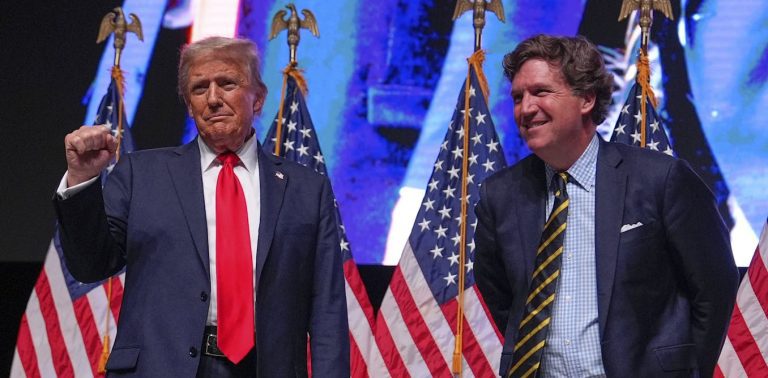US President Donald Trump’s president’s strike on the Iranian nuclear weapons program, which he has prefigured from time to time in recent days, has revealed surprisingly wide ground in American politics, even if it has caused controversy in the international community.
Almost immediately after the news of American military action broke out John Fetterman, a Pennsylvania democrat, exploded a declaration of support, describing the attack on “correct movement”.
Steny Hoyer of Maryland, who spent decades to the roles of Democratic leadership in the House, said that the strike “was essential to prevent Iran from developing a nuclear weapon.”
Governor of Pennsylvania Josh Shapiro, a probable presidential candidate in 2028, gave a thoughtful assessment of the attack, calling for the “dangerous” Iranian nuclear weapons program.
Other Democrats were more deaf. The main senators, including leader Chuck Schumer, complained about the lack of authorization from Congress and the failure of the administration to consult the congress before the strike, but did not specifically oppose the American action.
In the American system, only the congress can declare war, but the president has broad power as commander -in -chief to respond to threats. Most defenders of the presidential authority recognize its power to act militarily – in particular when the role of the United States is very limited, as in the strike in Iran. While the participation of the United States was deepening, calls for a role of congress in war authorization will become stronger and more legitimate.
Some on the far left, including Bernie Sanders and Alexandria Ocasio-Cortez, openly opposed the strike and even called for the dismissal of Trump. Ocasio-Cortez said:
The president’s disastrous decision to bomb Iran without authorization constitutes a serious violation of the Constitution and the powers of the Congress War. He risked impulsively to launch a war that can trap us for generations. These are absolutely and clearly indictment reasons.
On the republican side, there was also no unanimous support for the strike.
Even within the president’s coalition, some isolationists opposed any American strike on Iran. They rightly pointed out that Trump campaigned at the end of the wars, without starting them.
The personalities of the Tucker Carlson and Steve Bannon media openly urged the president not to hit Iran. Carlson’s interview on the issue with the Republican Hawkish Ted Cruz drew huge attention to social networks.
Tulsi Gabbard, director of national intelligence at Trump and member of his office, went so far as to make a video on the horrors of the nuclear conflict.
Trump’s reaction to Gabbard’s video was furious. He even suggested that he could Eliminate your officewho is responsible for coordinating the many American intelligence agencies.
Trump also called CarlsonOf which the following millions of people on X are a key element in Trump’s political base, “Kooky” to oppose a strike on Iran. Trump then made this go back, saying that Carlson had called to apologize, and that Carlson “is a nice guy”.
In the Congress, a notable Trump ally opposed the attack on Iran. Marjorie Taylor Greene, the controversial deputy for Georgia, said:
Whenever America is on the verge of grandeur, we get involved in another foreign war (…) This is not our fight. Peace is the answer.
Trump’s decision has a large cross support
It is certainly just to examine closely the base of Trump and to explore divisions and disagreements. However, it is very likely that Trump’s dominant personality means that he will maintain the vast majority of his base together.
More revealing on American politics is the support through the aisle of its Iranian policy.
The cheeky way of Trump and divisor rhetoric make it difficult for the Democrats to support him in all circumstances, but the disdain of the American people for Iran seems to be much stronger.
In 1979, Iranian revolutionaries took 52 American diplomats hostage. The image of these captive hostages has bandaged eyes and, at the mercy of Iranian radicals, is burned in the brain of older Americans.
A generation later, Militias supported by Iran have killed more than 600 Americans In the war in Iraq. There are other sins that Iran has committed against the United States, including the assassination attempt of Trump. In this context, Trump’s policy is in the American dominant current.
Why did Trump not consult the congress?
It was the standard practice of American presidents to inform the bipartite management of the Congress on the main national security initiatives, such as strikes on opponents. Although it is not a hard and rapid rule, the practice can produce more bipartite support for the actions of a president he could have otherwise. It is not unreasonable to think that the senior democrats in the congress could be more openly favorable to Iran’s strike if they had been consulted in this way.
However, Trump and his administration did not do this, for a reason. There is little value in bipartisanat open in America today. Even if the two parties are very close to Iranian politics, neither of them wants it to be seen in public as cooperating through the aisle. Each party prefers from afar to assert its base that it represents its interests and is not willing to make compromises with the other party. Democrats’ support does not strengthen Trump because its base is very suspicious of the opposition party.
The reverse is true for elected democrats, including those in the direction. They will be more vulnerable by progressives in the main competitions next year if they are considered insufficiently resisting Trump. There is no figure of Trump in their party to protect them from this base.
In American politics today, nothing is more dangerous than agreeing with the other party. There is a premium value to publicly oppose your political opponents, whatever the question. This allows a foreign policy that seems more fractured than it really is.


